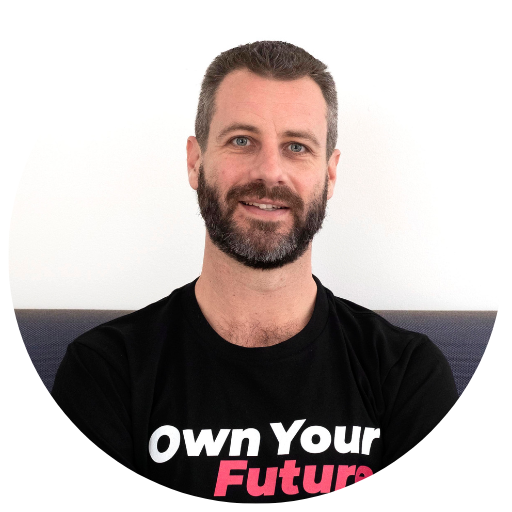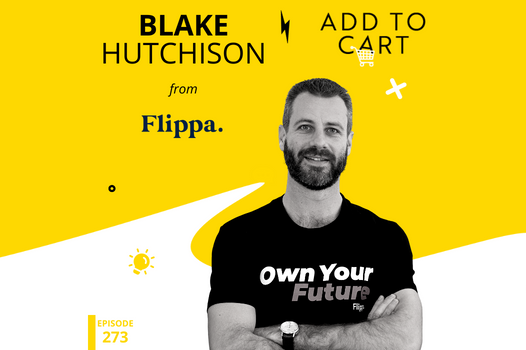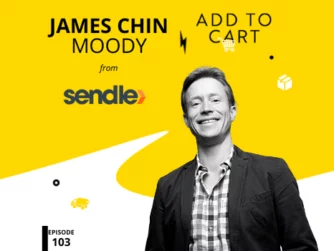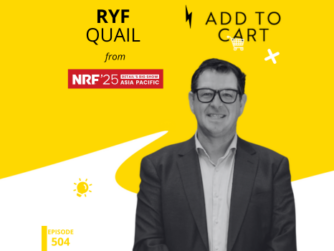In this episode of Add To Cart, we are joined by Blake Hutchison, the CEO of Flippa.
In this episode of Add To Cart, we are joined by a guy who aims to make the valuation and trading of ecommerce business much more realistic and fair. Blake Hutchison is the CEO of Flippa – a global marketplace for buying and selling online businesses. Founded in 2009, Flippa has 3 million users worldwide who can browse for content sites, SaaS businesses, ecommerce businesses, apps and digital services. As a matchmaker to connect buyers and sellers, Flippa’s notable sales include Mark Zuckerberg’s former website Facemash, overnight success story shipyourenemiesglitter.com and Retweet.com. In this chat, Blake shares his thoughts on what makes a business investable, how to make the exit process smooth sailing for all involved and why he believes in those who execute today and measure tomorrow.

In 2022, the biggest ecom business we sold was 10 and a half million dollars and just so you know, that sold at 6.5 times net profit.”
Blake Hutchison
Buying a business is less risky than starting one
“It’s all good and well to say I’m really good at making candles, so I’ll become a candle e-commerce retailer. Or I am passionate about food, so therefore I’ll start a food blog. These are very natural, common stories. But the reality is you can only do that for so long until you need to make a buck. So now you need to actually understand how to commercialize your efforts. And the commercialization of a business is not only difficult, but it’s time consuming. It’s not only time consuming, but it’s also costly.
So let’s say for argument’s sake, I imagine doing a hundred thousand dollars in revenue. So to do a hundred thousand dollars in revenue I might have to find a thousand customers paying 10 bucks each. So how do you find a thousand customers? 10 customers are actually pretty easy. You just talk to your mum and dad and a few friends. But a thousand customers is difficult. So the cost of acquiring a customer is, if you’re extraordinarily efficient, maybe it’s sub $10. But lots of companies will pay in excess of a hundred dollars to acquire a customer.
So now let’s do that math. The cost incurred to actually get yourself to some semblance of scale is high. And the risk of you not getting there before you run out of steam and or money is very high also. Whereas I can actually acquire that customer, I can buy a business and it will tend to cost me less to acquire that business and that customer base and that cash flow than it would to get to that point in time.”
On average 2.5 to 3.2 times net profit
The important thing for business owners who are in the e-com domain, and I’ll say business owners, doing sub five mil, sub 5 million annualized. What you need to understand is your business was never overvalued to begin with. You should never have been pegging yourself to the public markets. You should never have been pegging yourself to ecom businesses sitting on the cover of Forbes Magazine, claiming fastest growing business in history. I’m talking about Thoracio and the FBA Aggregator space, those types of things.
You weren’t in that league unfortunately, but that’s a good thing now, because your business was never overvalued to begin with. So you should not be compressing valuation on the basis of public markets or any buy side negotiation tactic. What you should be doing is looking for comparisons around your size. And so we see e-commerce businesses doing between $100,000 revenue and $10 million revenue, and on average you’ll get a 2.5 to 3.2 times net profit multiple for your business.
Execute today, measure tomorrow
I’m very big on people who will execute today and measure tomorrow. So, some people hypothesize too much, strategize too often. Strategy is a function of good quality execution. And so for me, so long it is core to what you are trying to achieve, you should be quick at actually executing so your strategy is more informed when you get to that planning period. And I think that fast growth businesses that I’ve been a part of have done that well and slow growth businesses that I’ve been a part of, haven’t.
Links from the episode
This episode was brought to you by…






